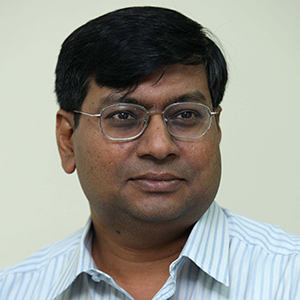During the debate on the Budget 2016, Sungai Siput MP Dr Michael Jeyakumar drew attention to important issues concerning poverty among Malaysians and its connection with migrant labour, that point to deep problems in the economy and our society.
 Among the points he raised is the gross discrepancy between the official statistics on poverty, which Prime Minister and Finance Minister Datuk Seri Najib Razak cited as a minuscule 0.6% in 2014, and the findings of a small survey that Dr Jeyakumar conducted in his constituency following the last sitting of Dewan Rakyat.
Among the points he raised is the gross discrepancy between the official statistics on poverty, which Prime Minister and Finance Minister Datuk Seri Najib Razak cited as a minuscule 0.6% in 2014, and the findings of a small survey that Dr Jeyakumar conducted in his constituency following the last sitting of Dewan Rakyat.
The income survey among 135 rural Malay households in the Sungai Siput constituency showed that 45% of them had household earnings of below RM1,200 and another 40% had an income of between RM1,200 and RM2,000. Only 15% of the households he surveyed earned more than RM2,000 a month.
The first point Dr Jeyakumar noted is that RM1,200 is too little to meet the requirements of a family with two or three children even in a rural setting.
Clearly, families surviving on this amount must endure much hardship and deprivation.
Dr Jeyakumar estimated that more than 45% of rural households in his constituency are living in poverty.
A major flaw in official calculations of poverty is the setting of a monthly household income of RM830 as the poverty line in Peninsular Malaysia. This, Dr Jeyakumar noted, is not a realistic figure.
Instead, he suggested, the poverty level should be set at RM1,500 per month per household for rural areas and RM2,500 for urban areas. Using this yardstick, Dr Jeyakumar estimated that some 25% of the population was living in poverty.
The first challenge we must overcome, therefore, is to depoliticise poverty measurement in order to confront the reality of its incidence in the country.
It is clear that the target group cannot benefit from the appropriate poverty alleviation policy measures and programmes if they are not captured in official statistics in the first place.
The second point that Dr Jeyakumar noted from his survey was that some 20% of the male respondents were working for less than RM900, the minimum wage for Peninsular Malaysia.
Why was this happening, he asked.
The answer lies with the 3.5 million undocumented migrant workers in the country. Spread throughout the country, they are willing to accept salaries that are below the minimum wage, he said.
Dr Jeyakumar pointed out that the presence of such a large number of undocumented migrant workers poses a major challenge to the country. Among the consequences are that they compete for jobs with Malaysians in the bottom 40% of the economy.
While it is clear that the problem of undocumented migrants has grown to worrisome proportions, the reasons why official interventions have so far failed to stabilise the situation are a little murky.
On the one hand, there is an avowed policy of reducing dependence on foreign labour, especially unskilled workers, that is stated in policy documents such as the 11th Malaysia Plan (11MP).
In this blueprint, the stated goal is to cap the proportion of foreign workers to the total workforce at 15% by 2020, which is in four years’ time.
That will take some doing, since low-skilled foreign workers, irregular migrants included, were estimated to have made up some 27% of the labour force in the 10th Plan period, according to a strategy paper by the Economic Planning Unit.
On the other hand, Malaysia’s controversial Tier 2 status on the US State Department’s 2015 human trafficking report indicates that there are some real concerns about the level of labour exploitation in the country, with are inevitably tied up with crime syndicates, regulatory issues and rogue employers, as human rights groups have incessantly highlighted.
Obviously, legislation like the minimum wages law or policy measures like the move to reduce dependency on low-skilled labour by themselves will fail to correct the situation when issues of governance undermine enforcement and implementation.
Indeed, one outcome of this disconnect between intent and action is that the bottom 40% are increasingly vulnerable to the pressures of the rising cost of living as external and internal stresses come together to erode purchasing power.
To address poverty effectively, it must be recognised that arguments for market forces to be allowed to determine wages and for productivity gains to be the rationale for wage increases have certain limits.
They must be balanced against the importance of ensuring that workers can earn a living wage in order to provide the basic necessities for their families.
When this sense of perspective is weakened, the economic imperative will tend to squeeze the lifeblood out of the workforce by keeping wages depressed for as long as possible.
This has certainly been the experience of Malaysian workers since the advent of migrant labour to our shores decades ago has weakened the bargaining power of the local worker.
Let us hope that it will not take that long for our society to rediscover that the true value of labour should include the means to live a life of dignity. – November 7, 2015.
* This is the personal opinion of the writer or publication and does not necessarily represent the views of The Malaysian Insider.


Comments
Please refrain from nicknames or comments of a racist, sexist, personal, vulgar or derogatory nature, or you may risk being blocked from commenting in our website. We encourage commenters to use their real names as their username. As comments are moderated, they may not appear immediately or even on the same day you posted them. We also reserve the right to delete off-topic comments